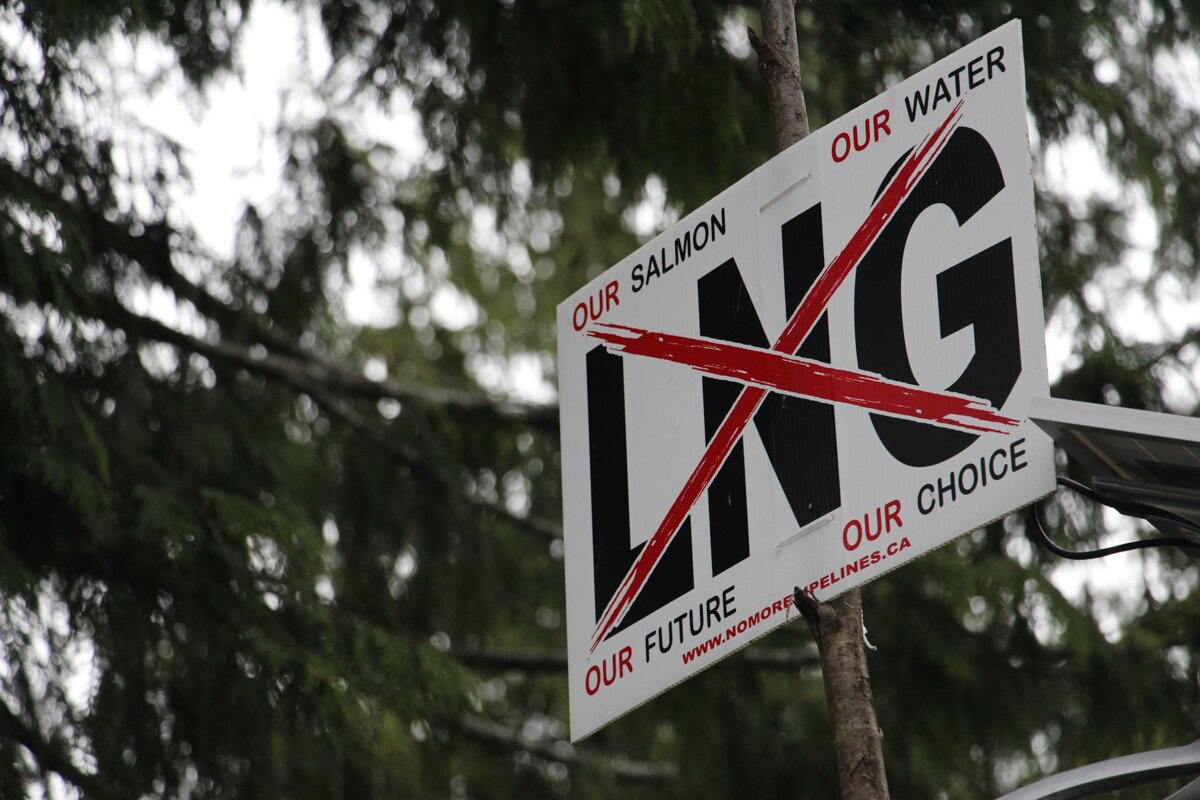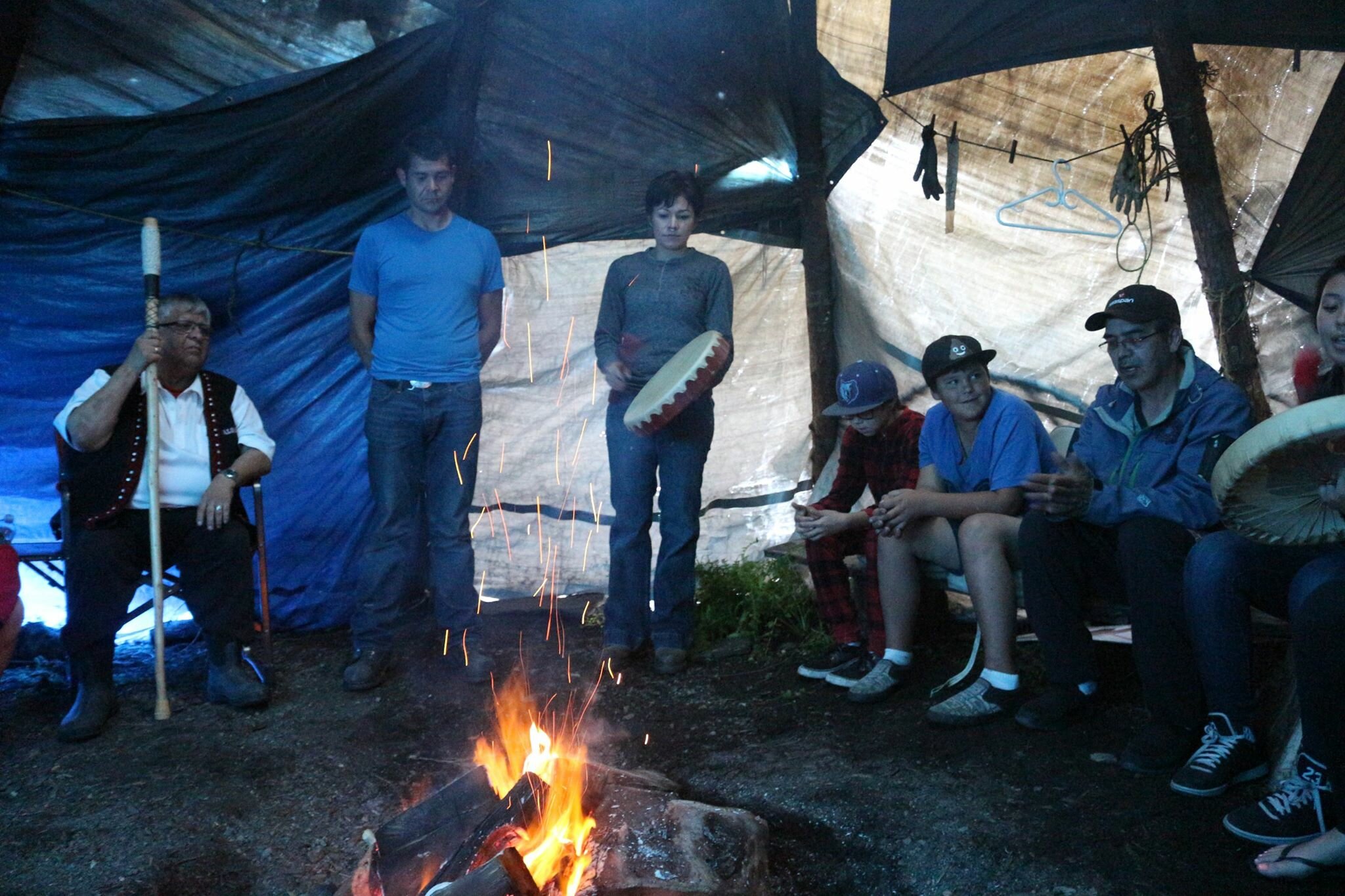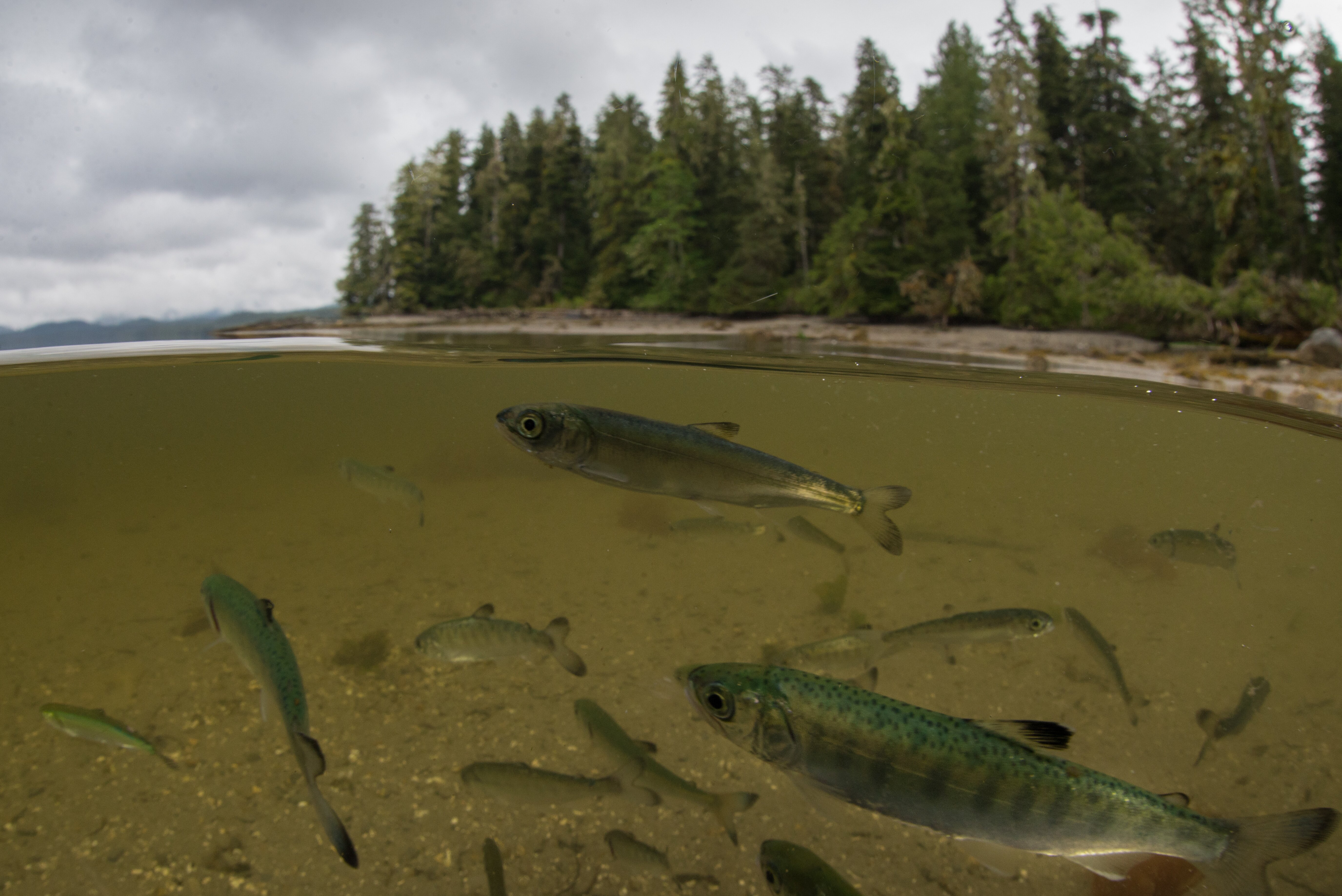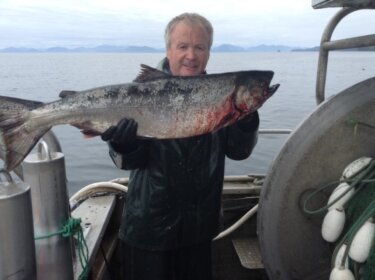Energy projects fuel tension between Trudeau and First Nations
Experts say approving mega-projects without First Nations consent creates economic uncertainty and hinders reconciliation.

Prime Minister Justin Trudeau set a high bar for reconciliation with Indigenous peoples in his first year in office—perhaps a bit too high.
Last December, the prime minister told an audience of First Nations leaders he would implement all 94 of the Truth and Reconciliation Commission (TRC)’s calls to action. In terms of resource development, the TRC called on the government and corporate sector to commit to “obtaining the free, prior and informed consent of Indigenous peoples before proceeding with economic development projects.”
That seems crystal clear, but it hasn’t happened. In Trudeau’s first year in office, major energy projects have been approved despite ongoing protests and legal action by some First Nations. Experts say that not only does this bring Trudeau’s commitment to reconciliation into question, it also creates economic uncertainty for the country.
“I think Mr. Trudeau buckled under pressure. I think that there was so much pressure put on him from industry that he had nowhere to go, so screw the natives,” said Don Wesley, also known as Simoyget (head chief) Yahaan, a hereditary leader of the Gitwilgyots tribe in northwestern B.C.
“We’re very disappointed with our prime minister.”
Wesley was especially disappointed on Sept. 27, when Minister of Environment and Climate Change Catherine McKenna announced the Trudeau government’s approval of the Pacific NorthWest LNG (PNW LNG) pipeline project.
PNW LNG is billed as one of the largest infrastructure projects in Canadian history. Its approval came with 190 conditions that must be met before the project can move forward. In northwestern B.C., a region anxious for jobs, many celebrated the decision, but environmentalists and some First Nations argue the conditions don’t go far enough to protect a sensitive salmon habitat or limit greenhouse gas emissions.
Direct action against the project is continuing just south of Prince Rupert on Lelu Island, site of the proposed $11.4-billion gas export terminal. The island has been the site of a Gitwilgyots tribe protest camp since August 2015. The tribe claims the island as part of its traditional territory. Even though 16 First Nations have given their support for the project through various agreements, the Gitwilgyots and several other First Nations groups along the proposed pipeline route are filing a judicial review of the project’s approval before the Oct. 27 deadline, claiming they were not properly consulted.
That’s the same strategy that reversed Ottawa’s approval of Enbridge’s Northern Gateway pipeline project in June, when the Supreme Court of Canada said the federal government failed to adequately consult with seven First Nations along that proposed pipeline route. If the courts find the government made similar mistakes with PNW LNG, it could mean First Nations halting yet another pipeline and terminal.
The proposed development promises thousands of jobs and, according to the Conference Board of Canada, $204 million annually in federal tax revenues. All of this stands to be lost if the First Nations’ claims succeed.
“It’ll go to litigation and this will be tied up for years. It won’t be be going anywhere anytime soon,” said Wesley.

First Nations have been fighting to have their rights recognized for decades, and the courts have gradually defined what’s known as the government’s duty to consult. When a project is being considered that would impact a First Nation, the government has to consult and accommodate that nation’s interests.
And just as Canada has developed a robust set of constitutional principles around Indigenous rights, a near-parallel evolution of Indigenous rights at the international level has given life to a new standard: consent.
From consultation to consent
In May, Canada followed the TRC’s calls by endorsing the United Nations Declaration of the Rights of Indigenous Peoples (UNDRIP), central to which are the principles of free, prior and informed consent. The previous Conservative government under Stephen Harper refused to endorse the declaration, calling it an “aspirational document” which wasn’t necessary because Indigenous rights were recognized by the Constitution of Canada.
But the Trudeau government signalled something much different. The decision to endorse the UNDRIP seemed to indicate the government was willing to back up its rhetoric about a new relationship with Indigenous peoples with action. The decision was celebrated at the time by Perry Bellegarde, the national chief of the Assembly of First Nations.
“Canada’s commitment to work with First Nations to fully adopt and implement the declaration is a crucial step in reconciliation,” said Bellegarde.
But by September Bellegarde had become frustrated with the government’s inaction on their promise to implement the declaration.
“The government committed to working in full partnership with Indigenous peoples to implement the UN declaration and we are ready to move. It is time to close the door on decades of paternalistic and colonial thinking. Embracing the declaration and free, prior and informed consent is a path to peace and reconciliation,” he said.
"In order to say yes, you have to be able to say no. And as we stand, that ‘no’ isn’t accepted by any government in Canada yet."
The Trudeau government made committing to the declaration a cornerstone of its renewed nation-to-nation relationship with First Nations. How its principles will actually be implemented remains to be seen, however. Federal ministers have dodged the question of whether consent means First Nations hold a veto power over energy projects. Legal experts suggest there is no blanket veto.
“Informed consent doesn’t actually require you to say yes to something. It’s more about whether you’ve got the information you need to say yes or no,” said Gordon Christie, director of the University of British Columbia’s Indigenous Legal Studies program.
“Free, prior and informed consent is not exactly what the government is trying to achieve with this process,” Christie said about PNW LNG. “They’re still focused on consultation, which is a different beast.”
Cynthia Callison, a lawyer from the Tahltan First Nation with expertise in constitutional law, agrees that consent does not equal veto power. “Some of the exceptions to free, prior and informed consent are if this [project] really serves a public purpose, versus just commercial interests,” she said.

Callison adds that the burden of proof falls on the government to prove the project is in the broader public interest. Outside of these exceptions, she says implementing the principles of consent would mean that Indigenous groups in Canada would have the right to say yes or no to resource development projects that would impact their traditional territory or culture.
“It would mean the government would have to say, ‘This is an Indigenous territory—we won’t go ahead with the development unless you consent. We’ve provided you with all of the information including all of the risks stemming from the project, and we’re doing it before the project proceeds in any physical way.’”
Did PNW LNG meet the test?
The Gitwilgyots tribe argues that PNW LNG’s approval was a foregone conclusion, and that the tribe’s concerns regarding the project’s impact on the environment and their culture were ignored.
“Lelu Island was ground zero between the government and the company. They didn’t have a backup plan. It was picked for economic reasons, because they deemed it the cheapest place to put the [LNG export] site,” said Wesley.
“There was no consultation. Consent hasn’t been reached.”
In an email response, however, the Canadian Environmental Assessment Agency (CEAA) said they “welcomed any information with respect to potential impacts of the project. The views of the [tribe] were considered in finalizing the Environmental Assessment Report, and provided to the Minister of Environment and Climate Change to inform her decision making.”
“I think Mr. Trudeau buckled under pressure. I think that there was so much pressure put on him from industry that he had nowhere to go.”
But the CEAA fell short of using the word “consent” when asked if the project’s approval contradicts Canada’s endorsement of the UNDRIP.
“The Government of Canada is deeply committed to renewing the relationship with Indigenous peoples based on recognition of rights, respect, cooperation and partnership. These principles are the foundation upon which the UNDRIP is based, and are consistent with the Agency’s approach to consultation with Indigenous Peoples,” CEAA’s statement read.
Callison says, “In order to say yes, you have to be able to say no. And as we stand, that ‘no’ isn’t accepted by any government in Canada yet. We haven’t moved from whether or not we should incorporate to how [to] incorporate Indigenous rights in Canadian law. And that’s where there needs to be a fundamental change.”
Minister of Justice Jody Wilson-Raybould has admitted that the UNDRIP can’t be inserted “word for word” into Canadian law. In July she told a gathering of First Nations leaders that fully adopting the declaration as a means of achieving self-determination for every First Nation across the country is “unworkable” given the current structural confines of the Indian Act.
“It is, unfortunately, not as simple as just ripping up the Indian Act. Although, if we are speaking openly, adopting the UNDRIP should really require us to do so,” she said. “But, in doing so, we would also create legal and economic uncertainty during the period of transition.”
Economic uncertainty
Yet it seems legal and economic uncertainty are being created regardless. In the case of PNW LNG, six municipalities and eight chambers of commerce along the pipeline route submitted letters of support for the project and are anxiously awaiting economic development that will flow if Petronas, Malaysia’s state-owned oil and gas giant and a majority investor in the project, makes a positive final investment decision. Meanwhile, the 16 First Nations that support the project are positioning themselves to receive potentially millions in financial benefits, as well as jobs and training for their members.
While the details of these agreements with industry are confidential, nine First Nations have reached benefit agreements with the B.C. government that are tied to the project’s approval. If the project becomes a reality, these nations will receive nearly $16 million in financial payments combined, and will be eligible for a portion of $10 million annually in ongoing benefits.
“The pipeline project and the [PNW LNG] facility will benefit our members for many years to come,” said Harold Leighton, elected chief of the Metlakatla First Nation, when that nation’s agreement was reached.
“We are confident that our way of life and the environment, and in particular Lelu Island, will not be negatively affected by the project,” he added.
But some do not share Leighton’s view, and remain opposed to the location of the terminal. Had the government approached First Nations from the beginning to ask where the project should be, Wesley says, the fight over Lelu Island might never have taken place.
“We’re not against development, it’s about where they’re going to put this thing,” he said. “They should have gone to a plan B instead of trying to pick a very sensitive area.”

Instead, the project will be in court long before Petronas makes its final investment decision. Senior advisor to the federal government Carol Anne Hilton says international investors are closely watching the shaky legal landscape of B.C. unfold.
“I think a lot of money is put up front by the corporations with some degree of uncertainty,” said Hilton, who is also a leading First Nations business entrepreneur. “That’s the big cloud hanging over the economic system. What is certainty and how is that guaranteed? This government is under a pressure pot with understanding the economic environment in relation to global markets and First Nations relations.”
Economic reconciliation
Hilton is from the Nuu-chah-nulth Nation and specializes in bringing First Nations, industry and government together to design new approaches for sustainable, inclusive development. She says the key to economic certainty is to modernize the regulatory review process in a way that fully includes First Nations from the beginning.
The conflict on Lelu Island, she adds, should serve as a lesson that demonstrates the need to merge modern economics with an Indigenous worldview.
“I think the [Gitwilgyots tribe] has been clear that it’s all about the salmon habitat and the salmon habitat is essential to their cultural identity. If there is a win in this, the win is really where industry, government and First Nations can collaborate on the further development of free, prior and informed consent and setting the establishment of what is consultation and how it’s done well,” she said.
Hilton teaches a course at Simon Fraser University called Indigenomics, a term she coined and defined as the practice of bringing an Indigenous perspective to economic and social development.
"That’s the big cloud hanging over the economic system. What is certainty and how is that guaranteed?"
“I think Canada is struggling with identifying its relationship to First Nations people. I see Indigenomics as being the establishment of new language that supports the development of the [Indigenous] relationship in Canada to identity alternative views to seeing First Nations people as a burden on the system, versus full economic drivers.”
Part of that language, she says, is implementing free, prior and informed consent as a vehicle towards economic certainty for resource development projects. She says the consequences of not moving forward on international Indigenous rights standards are more protests, litigation and a failure of the Trudeau government to fulfil its election promises to First Nations.
“There’s a new requirement of how to do business and that requirement has been laid out in the courts. Canada can either respond well to that and change the actions that have caused the conflict or keep doing the same thing and increase the costs and slow down the economic process,” says Hilton.
